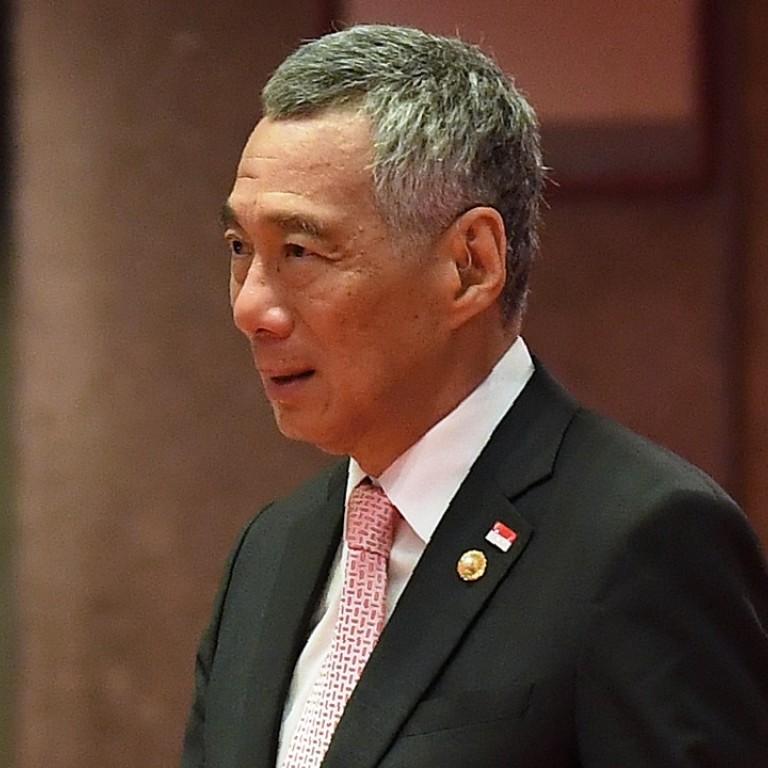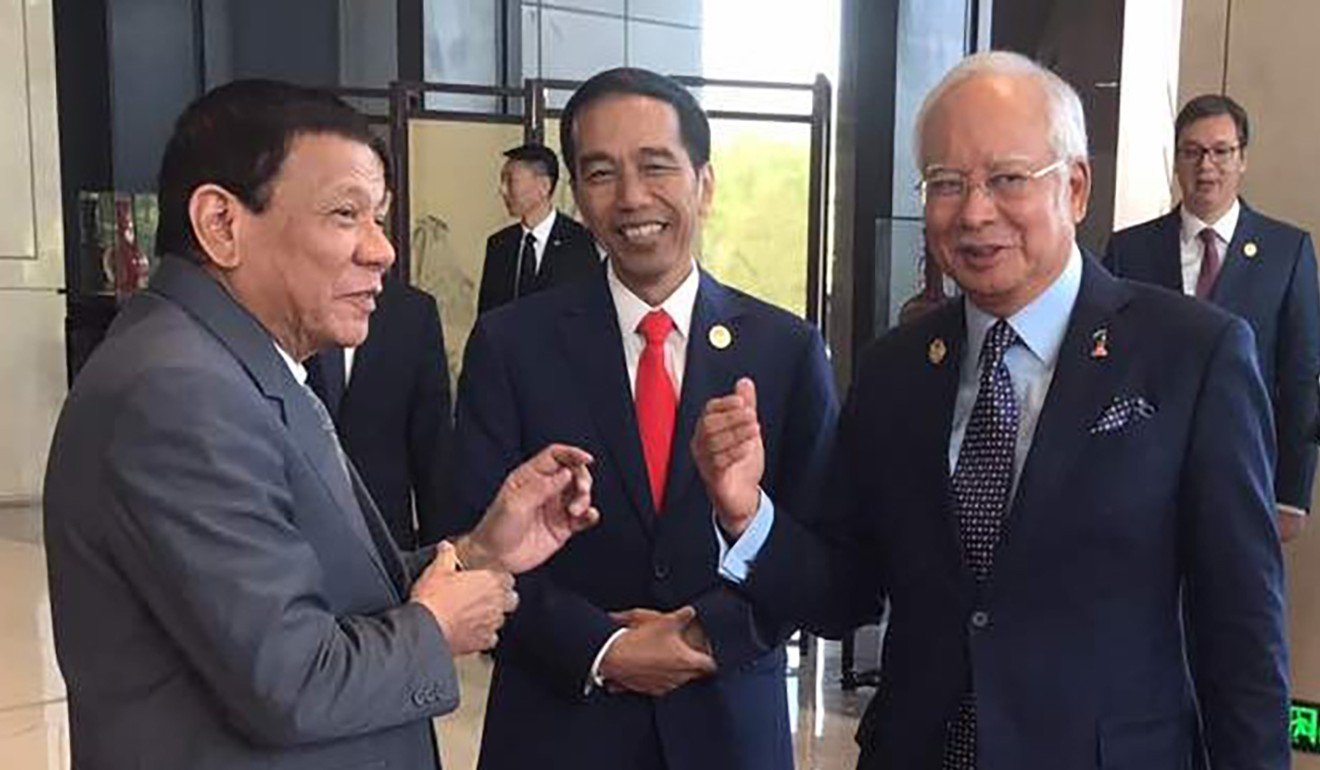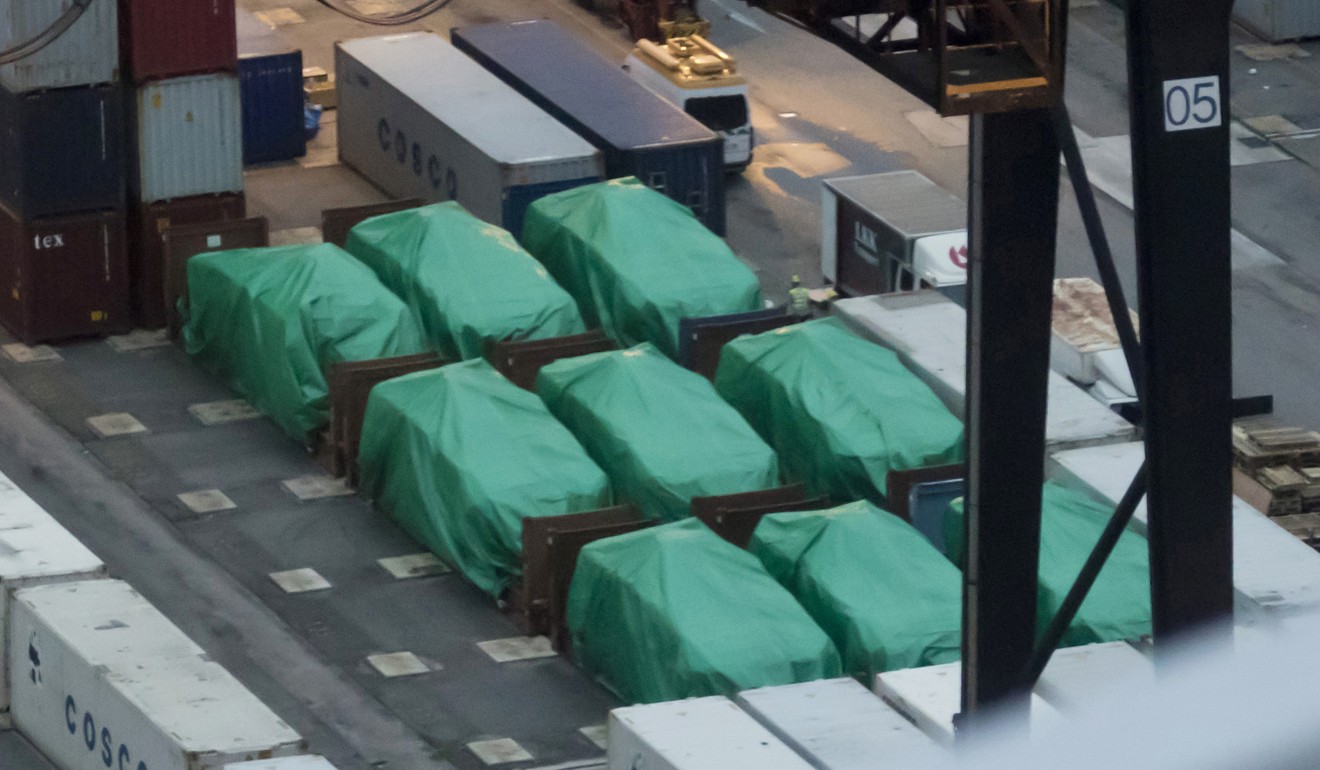
What new Silk Road snub means for Singapore’s ties with China
Lion City’s Prime Minister Lee Hsien Loong was not among the many heads of government invited to a summit for Chinese President Xi Jinping’s Belt and Road project, suggesting Beijing is still smarting from a diplomatic spat
China’s decision not to invite Singapore’s Prime Minister Lee Hsien Loong to last weekend’s Belt and Road Forum highlights the still-strained ties between the two countries, observers say, though officials in the Lion City have tried to shrug off talk of any diplomatic rift.
Of the 10 Association of Southeast Asian Nations (Asean) members, only three countries were not represented by their heads of government at the high-level summit in Beijing: Singapore, Thailand and Brunei. Twenty-nine national leaders and the representatives of 28 other countries attended the two-day meeting to discuss the China-led initiative to rebuild the ancient Silk Road trade route through a network of new ports, railways and roads.
The Singapore delegation was led by national development minister Lawrence Wong, while Thailand was represented by foreign minister Don Pramudwinai and four other cabinet ministers. Brunei, the tiny but oil-rich kingdom ruled by Sultan Hassanal Bolkiah, was represented by second foreign minister Lim Jock Seng.
In an interview with travelling Singaporean media, Wong revealed that the invitations were decided by China. It was the first official acknowledgement that Lee was not invited. In sharp contrast, regional counterparts including Malaysia’s Najib Razak, Indonesia’s Joko Widodo and the Philippines’ Rodrigo Duterte prominently highlighted their participation in the summit on social media. Lee’s office did not respond to This Week in Asia’s queries on the matter.

Smaller nations with less-established diplomatic ties with Beijing also sent their heads of government to the summit. These included Fiji, Chile, Greece, and Hungary.
Britain sent finance minister Philip Hammond, the government’s de facto number two, while the US delegation was led by White House adviser Matt Pottinger.
Thitinan Pongsudhirak, a Southeast Asian foreign policy expert, said in the case of some countries like Thailand, heads of government were probably left off the guest list because of their peripheral geographical location in the sea and land routes linking China with the rest of Asia and Africa.
PROTRACTED SPAT
But while nearly half of the 57 countries were not represented by their heads of government, foreign policy experts said Lee’s absence was conspicuous as it provided clues on the extent of the fallout following a protracted diplomatic spat between the two countries over the past year.
Xue Li, a senior research fellow at the Chinese Academy of Social Sciences think tank, said China’s decision not to invite the Singaporean leader reflected a growing belief in Beijing that the Lion City sought only economic benefits from China, while “relying on the US for security”.
“China is gradually recognising this and therefore doesn’t really care if the Singapore PM attended or not,” Xue said.
Michael Tai, a Singapore-China watcher at Cambridge University, said the non-invite showed the city state had “not patched things up with Beijing since last year’s Non-Aligned Movement Summit incident”. He was referring to the public exchange of words between Stanley Loh, the Singaporean envoy in Beijing, and the state-linked Global Times newspaper over a report on the city state’s position on the South China Sea dispute during last year’s Non-Aligned Movement Summit.

Bilateral ties hit another low in November after Hong Kong customs seized nine Singapore military vehicles en route from exercises in Taiwan to the Lion City, citing a breach of local laws on the shipment of strategic commodities. The vehicles were returned two months later, but China used the episode to voice its displeasure at Singapore’s longstanding policy of conducting military exercises in Taiwan, which Beijing considers a renegade province.
Hong Kong to return seized armoured vehicles to Singapore
After the vehicles were returned on January 24, Singaporean officials declared that their behind-the-scenes diplomatic efforts had helped to fix the months-long diplomatic turbulence between the two countries. Lee, in an interview with the BBC in March said “both sides handled it carefully and there had been a satisfactory outcome”. But the non-invitation to the weekend summit showed he and other Singaporean leaders were not on the same page as Beijing on the state of bilateral relations, some observers said.
“What we can deduce is that China is laying its unhappiness over these issues with the Singaporean head of government, who happens to be Lee Hsien Loong,” said Chong Ja Ian, a Chinese foreign policy expert at the National University of Singapore.
WATCH: Belt and Road - What, when, why, how?
The incident was not the first time Lee, the son of Singapore’s founding premier Lee Kuan Yew, has come under pressure from Beijing. Months before taking over as premier in August 2004, Lee triggered a furious reaction from China after he made a private visit to Taiwan and offered to mediate between the leaders of the self-governing island and Beijing. China, which considers Taiwan a renegade province, portrayed the gesture as an interference in domestic affairs and temporarily suspended high-level diplomatic exchanges.
The senior Lee, who died in 2015 aged 91, is widely recognised as the architect of an adroit foreign policy that embraces all major powers. He maintained close ties with senior Chinese leaders even after he retreated from public life following a near five-decade political career.
Can China really deliver Malaysia’s Singapore slayer?
“The current administration in Singapore is different from the generation of Lee Kuan Yew,” said Xue, the Chinese foreign policy expert. “They are used to dealing with China from their Western perspective that is being a teacher of China, rather than a follower of China,” he added.
Tai, the Cambridge-based observer, said the new Silk Road could drive a permanent wedge between the two countries. “The Belt and Road promises to bring regional connectivity on an unprecedented scale, which could soon undercut Singapore’s most important asset – her position as the premier trade and financial centre between the Indian Ocean and the South China Sea,” he said.
‘ALL WEATHER FRIENDS’
Singaporean officials meanwhile have maintained the city state is committed to a strong relationship with China. Wong, who led the Singapore delegation at the summit, said the city state could play a role as a key financial hub for the Belt and Road Initiative. The city state has assets under management of US$1.8 trillion, and last year was the top destination for foreign direct investment linked to the new Silk Road. In a forum in Beijing last week, senior Singaporean diplomat Tommy Koh said the Lion City was one of China’s “all weather friends”. “The bottom line is this: Singapore will never allow its relationship with any major power to harm China,” he said.
WATCH: Chinese President Xi hosts Belt and Road forum
He was refuting comments by the Chinese foreign policy observer Ruan Zongze that Singapore was aligned with the US despite publicly claiming it was not. Officials have also sought to use a series of diplomatic engagements between the two countries this week to downplay talk of strained ties. Senior Communist Party official Zhao Leji met with Lee on Tuesday during an official visit to Singapore. Wong is chairing the World Cities Summit Mayors Forum in Suzhou starting on Thursday. The two-day event is organised by the Singapore government.
And on Friday, Chee Wee Kiong, the permanent secretary of the Singaporean foreign ministry, will co-chair a scheduled China-Asean meeting with Chinese vice-foreign minister Liu Zhenmin. Singapore is the designated coordinator of China-Asean relations.
At home, some online commentators said the episode crystallised the constant exhortations by the late elder Lee on the vulnerability of small states. Lee in 2009 had said “a small country must seek a maximum number of friends, while maintaining the freedom to be itself as a sovereign and independent nation”.

